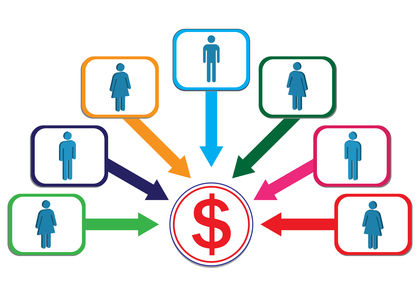I have dealt with the daily management of a 14+ person indie team called BetaDwarf for more than 3 years now. So far we have released FORCED.
I set out like many others. I wanted to make a cool game, but steadily felt the responsibility of what “CEO” entails. The management tasks slowly outgrew the development tasks. I had never imagined that there would be so much stuff to take care of. It’s not that i’m complaining because many of the management tasks like planning a conference, having individual team meetings, business plans, planning the future, shaping up a company culture and a ton of other stuff are indeed interesting - it’s just not what I expected.
To effectively deal with my challenges, I have always found my to-do approach important, and it actually took me 2 years to find an approach I liked, so here it goes:
6 Excellent reasons why Baboon-do works
But the only thing I have used consistently and by far the most, is a simple approach I call Baboon-do, and it’s based on the google doc. tech :) But don’t walk away, even though it sounds simple I have my 6 excellent reasons on how it has improved my life.
Beneath is an example of my to-do list:
The basic syntax I utilize:
Green = personal stuff
Red = an important deadline
-- = Stuff above these two dashes are completed (Only used on the current day)
>>> = Marks my current day, not also that this is made into a “Header 1” tag, so I can easily jump to it from my table of contents.
There’s a few reasons why this work so well for me.
1# Everything goes, whenever I have a thought, an idea or a concrete assignment, I add to my to-do. It's a relief to do so, and while adding it, I can basically determine when I have the time to think about it. I add everything, even personal stuff that might influence my working hours, so this is actually my calendar.
2# The constant reminder, if I don’t complete all assignments planned for a day, I add them to the next day or delete them. This tells me whether an assignment is actually important enough, because if I manually postpone it each day, it's usually not so important. Or the opposite happens, "Okay Steffen - please realize that you have postponed this one 3 times now, fix it!!!"
3# The backlog, through this system i get a backlog describing my doings on a daily basis. I can go back and check what I did the 23th of february if I want to. I Have used this system since 15th of january 2013, so I have pretty detailed recordings of my life, which is also a bit scarry.
4# Access from everywhere, I can easily access my to-do list via the drive app on my phone or through my web browser wherever I am, and it’s backed up in the cloud.
5# Link to mails, this is actually a general tip which work in most of the other tools as well. However it took me so many years to realize it, and it’s one of my favorite tricks. So here it goes, did you know every mail in your gmail has a unique url? If you open a mail the url in your browser is unique, and it’s insanely effective to utilize that especially in this to-do structure. It basically allows me to always keep my mail clean. I read everything and just add it to my to-do while keeping my mail clean - fuck yea!
6# Easy editing, this is actually the most important quality, and the one all it’s competitors fail. The editing is so simple and flexible that it allows my own structure. I can easily add, delete or rearrange my intuitive bullet point assignments in a few seconds.
That’s basically it, I hope it made sense, and please let me know what you think in the comments or at @baboonlord






